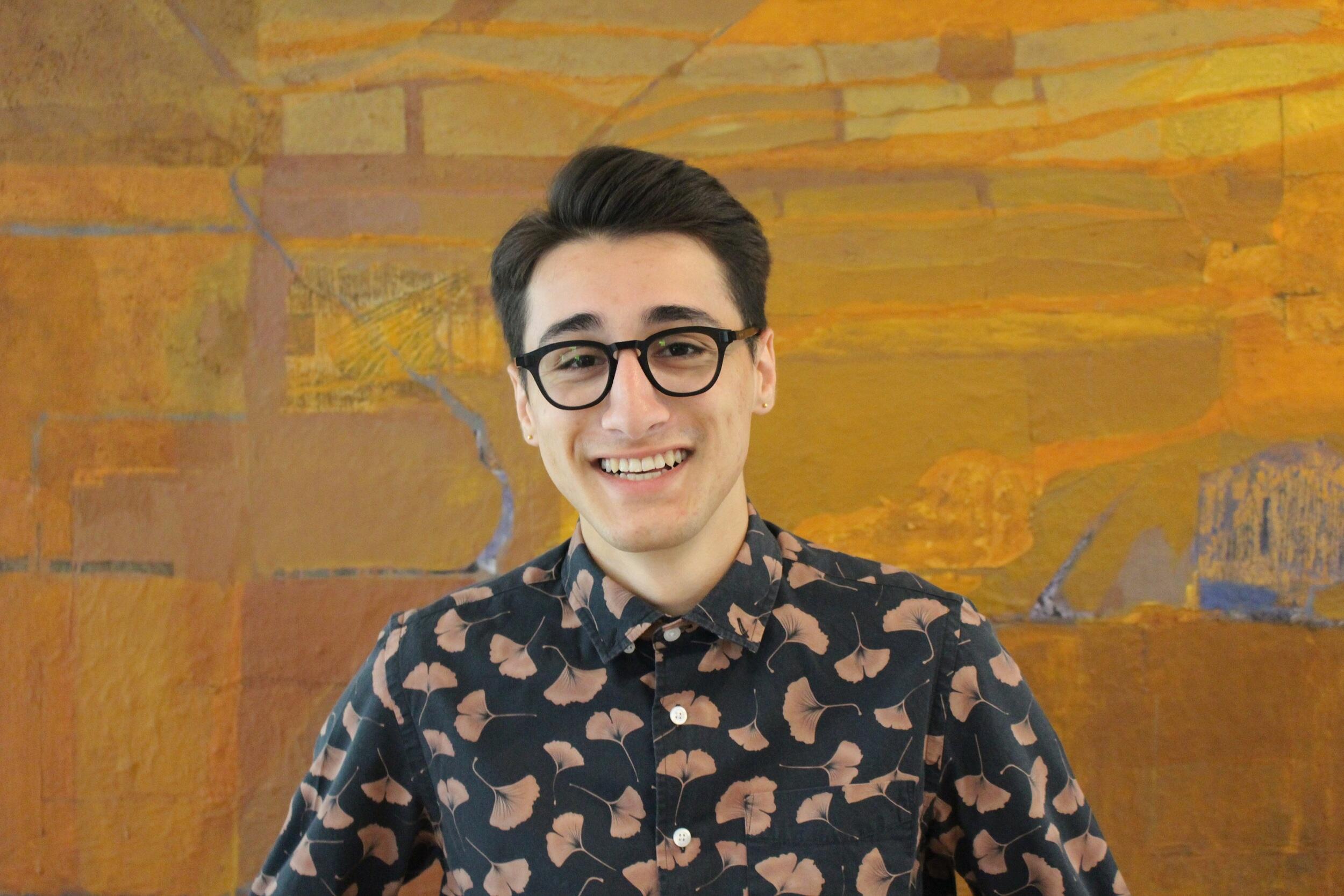
July 24, 2019
Early experiences at VCU ignited Goldwater scholar’s passion for research
Share this story
What makes engineering so fascinating to Anastasios “Tassos” Karles are the myriad problems in need of solutions.
“I'm interested in a lot of things,” said the Virginia Commonwealth University rising junior. “I think a lot of people have usually one thing that they really are good at, and I'm sort of a jack of all trades. That's why I like engineering, because at the end of the day, learning is problem solving and learning how to problem solve. And to me, electrical engineering, computer engineering, these fields are about solving problems and learning how to solve really complex problems using things like math or physics."
“You can branch into other fields as well, because at some point in designing hardware and designing products, philosophy also comes into play. There's interesting ethical problems that one must consider.”
Karles’ multifaceted interests impressed the Barry Goldwater Scholarship and Excellence in Education Foundation, which named him a Goldwater scholar for the 2019-20 academic year. The undergraduate scholarship — the nation’s most prestigious in natural sciences, math and engineering — supports exceptional college sophomores and juniors in research fields.
“For the past 15 years I have had the opportunity to work with many highly gifted undergraduate and graduate students in my lab on a daily basis,” said Carl Elks, Ph.D., associate professor in the VCU Department of Electrical and Computer Engineering, and Karles’ faculty adviser. “During this time I have worked with several past recipients of Goldwater Scholarships. To me, the thing that seems to stand out among these students is their persistent curiosity to explore and understand — it's a passion with these kids. Tassos [Karles] delves into complex problems and is not deterred. His excellent communication and teaching skills allow him to connect with the students with affable ease and effectiveness.”
Electrical engineering, computer engineering, these fields are about solving problems and learning how to solve really complex problems using things like math or physics.
The foundation’s site states that “one of the best ways you can demonstrate a passion for doing research is by doing research” — something that Karles, an Honors College student, took to heart before he ever heard of the Goldwater Scholarship.
“Tassos is always thinking about how he can solve a problem differently or do something that can improve an existing process, and he does this without coaxing,” Elks said. “He rolls up his sleeves and tackles problems head on.”
Karles recognized his passion for research as a high school student in the International Baccalaureate program at Henrico High School. During his junior year, he volunteered as a research assistant in the lab of Erdem Topsakal, Ph.D., professor and chair of the Department of Electrical and Computer Engineering, where Karles researched diabetes diagnosis and care with Arthur French, a graduate student.
“We studied how glucose concentration affects the electrical properties of water in order to work towards the development of [a better] continuous blood glucose monitoring device for diabetes care and diagnosis,” Karles said.
That project triggered his passion for research.
The next year, he applied for the VCU Dean's Early Research Initiative, which provides engineering research experience to high school students. Karles’ research involved electromagnetics and antenna design.
“I had to get a lot of background because it wasn't something I was familiar with at all,” he said. “And I hadn't even taken a physics class yet.”
The experience fueled his passion for research and taught him that electrical and computer engineering is a fascinating field, he said. He was motivated to pursue other topics such as cyber physical systems, mathematical modeling and smart cities.
In his Goldwater application, Karles wrote about his DERI research, as well as his current projects — the Electrical and Computer Engineering Department’s Cyber Physical Systems and Trusted Autonomy Vertically Integrated Projects, multiyear, multidisciplinary group research projects that recently developed an F 1/10 semi-autonomous car prototype — and researching combinatorial testing methods to test a smart sensor developed in the Cyber Physical Systems lab.
He also wrote about how his experience as a first-generation American of Greek descent influenced him.
“Through listening to my parents describe their own lives, as well as observing how hard my cousins worked to get into college, I learned to appreciate various educational paradigms,” he wrote. “Observing how people lived a simpler lifestyle, but still maintained a high level of sophistication and sense of satisfaction with their lives helped me develop my own values and a multicultural and inclusive outlook on education.”The Goldwater Scholarship has reaffirmed Karles’ passion for research and his goal of pursuing his Ph.D. But he’d also like to expand his experiences into the real-world engineering industry, perhaps in cybersecurity consulting.
“But ultimately, after everything's done,” Karles said, “I want to be a professor at a university like VCU, whose mission is to engage in cutting-edge research while being actively engaged in the community and promoting equity and access to education and health care.”
Subscribe to VCU News
Subscribe to VCU News at newsletter.vcu.edu and receive a selection of stories, videos, photos, news clips and event listings in your inbox.












